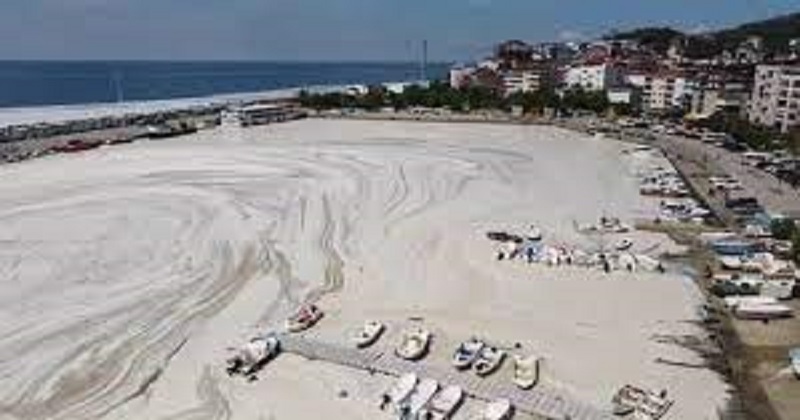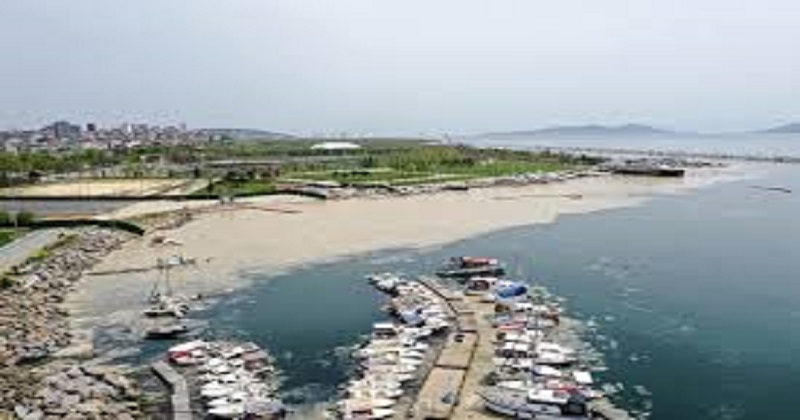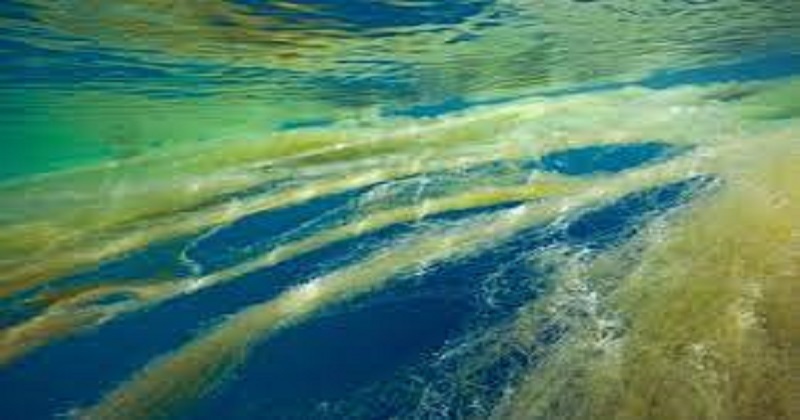
‘Sea Snot’ spreading in the Sea of Marmara to the south of Istanbul in Turkey poses threat to marine life as well as humans. The coastline is seen blanketed with a thick, creamy, gelatinous substance.

‘Sea snot’ also known as marine mucilage is a thick mucus-like organic matter found in the sea. Though this substance is not harmful generally, it attracts viruses and bacteria, including E. coli. E. coli bacteria are a threat to maritime flora and fauna, as well as humans exposed to contaminated water.
‘Sea snot’ is produced by phytoplankton (microalgae) which are found in seawater as well as freshwater. Phytoplankton thrives in warm water. It increases rapidly in areas where nutrients such as nitrogen and phosphorus are available in abundance and the water is warm. When nutrient-rich untreated sewage is released into the sea it becomes ideal for phytoplankton to increase. Normally they produce oxygen. But when they are stressed phytoplankton produce sea snot which is made up of protein, carbohydrates, and fat.

Prolonged warm temperature, calm weather, and an abundance of nutrients set an ideal environment for the creation of sea snot. Warmer, slower-moving waters increase the proliferation of sea snot and allow it to accumulate in massive blobs. When ‘Sea snot’ is formed in large amounts it becomes a blanket over the sea which ensnares or suffocates the marine life. Eventually ‘Sea snot’ sinks into the seafloor suffocating the corals and other invertebrate life at the bottom of the Sea
The Sea of Marmara receives untreated wastewater which created an ideal environment for the production of sea snot.
Tahsin Ceylan, who is making a documentary about the impact of the sea snot said, “The Sea of Marmara’s plight is the outcome of what humans did. This is the outcome of household waste and pollution,” “The only thing to do is not to throw your waste into the sea,” “I think nature does not deserve this,” he added.
Photographer Özcan Yüksek tweeted a picture of the sea snot along the coastline with the comment, “The view of the sea in Erdek. Unfortunately!”
Erdek'te denizin manzaras?.
Ne yaz?k ki! pic.twitter.com/8Os0OoM2BD
— özcan yüksek (@ozcanyuksek) May 29, 2021
To record the presence of mucilage at the bottom of the sea, Prof. Mustafa Sari the dean of Bandirma Onyedi Eylül University’s Marine Faculty, dived 18 meters deep into the sea near Erdek, a coastal town in the south of Marmara.
Sharing a photo of the sea bed he tweeted,
“I dived myself today. I descended from the shore to a depth of 18 meters. Unfortunately, the formation of mucilage continues. The bottom of the sea is covered with mucilage,”
Bugün kendim dald?m. K?y?dan 18 m'ye kadar indim. Müsilaj olu?umu devam ediyor ne yaz?k ki. Denizin dibi müsilaj örtüsüyle kaplanm?? durumda. Foto?raf? büyütüp bak?n lütfen! pic.twitter.com/v0kpxHxXYW
— Mustafa SARI, Prof. Dr. (@mustafasari_van) May 30, 2021
According to scientists climate change and pollution is accelerating the spread of sea snot at an alarming rate. Unless the waste released into the sea is treated properly, the problem will continue.

Post Your Comments